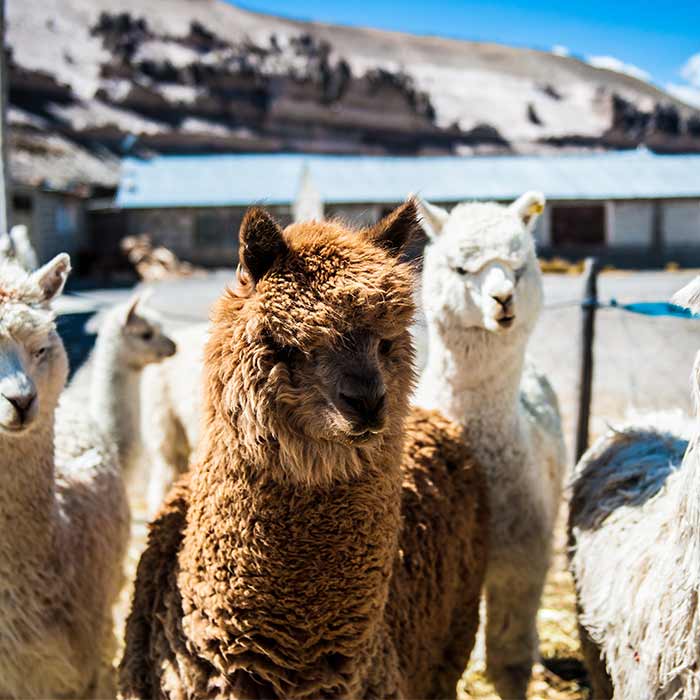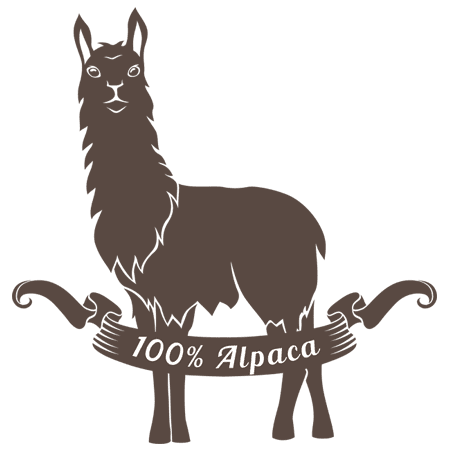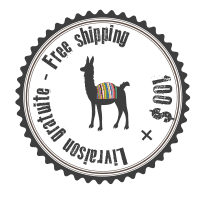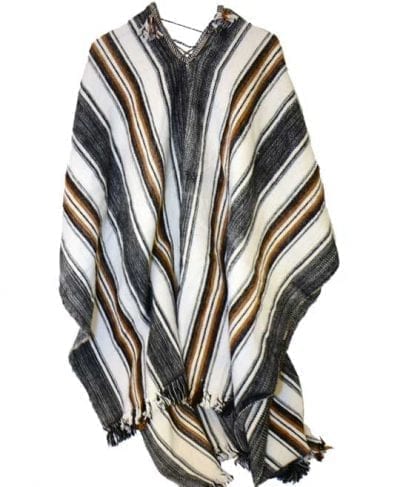
When we think of llamas, alpacas (Vicugna pacos), we think of Peru, Bolivia, Chile, Ecuador! These wonderful countries have made us known and enjoy the alpaca wool that is well worth discovering. Here’s why you should adopt it right now.



The suri alpaca
there are llamas suri and alpacas suri as well. Soft, beautiful, the long coat of the alpaca suri can be likened to rastas (dreads lock). Indeed, its fleece will tend to twist while its lengthens. Its fleece has a lustered appearance, which is also an indication of its quality.
Note that the alpaca wool of the suri is usually mixed with other fibers; it is simply too slippery to be alone! Nevertheless, its fiber remains softer than the huacaya alpaca.
Physically, his ears are bigger than his huacaya cousin. It would be less resistant to cold and more fragile than alpaca huacaya, among others because their backs are more exposed to cold.
The suri alpaca is much rarer than the huacaya, so his wool is much more expensive due to its rarity.
The huacaya alpaca
They accounted for more than 90% of the Alpaca population worldwide.
It is easily distinguished by its soft appearance as a “teddy bear”. In addition, it is more resistant than the suri alpaca and therefore easier to maintain in excellent health. Also, its fiber is stronger than the fiber of the alpaca suri.

Alpaca fiber: a treasure reserved to the elite of the Incas society!
At the time of the Incas, clothes made of alpaca wool were reserved for the elite of Inca society, such as the emperor and the spiritual leaders. Nowadays, it is recognized as the most luxurious fiber in the world!
Alpaca wool is eco-friendly
Natural fiber, produced by the animal that must be mowed every year. To give you an idea, an average animal can provide 2 to 3 kg of hair a year..
Mowing coincides often with the arrival of spring … because it is a very hot wool!
Alpaca wool is made in Peru, Canada, and all around the world!
The main producer remains Peru, but alpaca farming can be done in various climates around the world, including in Canada. I was even told once that there would be breeding in a country as hot as Israel!
Alpaca wool is soft, warm, insulating, hippoalergenic and keeps away moisture
Do you appreciate the sweetness of cashmere? Alpaca wool is even softer! Compared to sheep’s wool, it is softer, warmer and more resistant.
In addition, there are 250 natural alpaca wool colors , which means that many pieces of clothing can be made without the use of dyes. This is a great benefit if you have more sensitive skin!
In addition, if you do not support the wool of sheep in contact with your skin, you will not have this problem with alpaca wool, which is hypoallergenic .
Is there lanolin in the fleece of the alpaca as there is with the mohair and fleece of the sheep?
– “No, alpaca wool does not have lanolin, which makes it naturally hypoallergenic, and lanolin is often responsible for allergic reactions.”
Species
Average diameter of the fiber (micrometer)
vicuna
Angora
Cashmere
Alpaga
Guanaco
Camel
Lama
Mohair
Sheep
10 to 12
11 to 15
15 to 19
16 to 25,5
18 to 24
18 to 26
20 to 40
24 to 40
20 to 80
How to wash alpaca wool clothes
You can clean your alpaca wool clothes with the gentle cycle washing machine. Avoid the dryer, otherwise pieces of clothing may shrink or become damaged prematurely.














